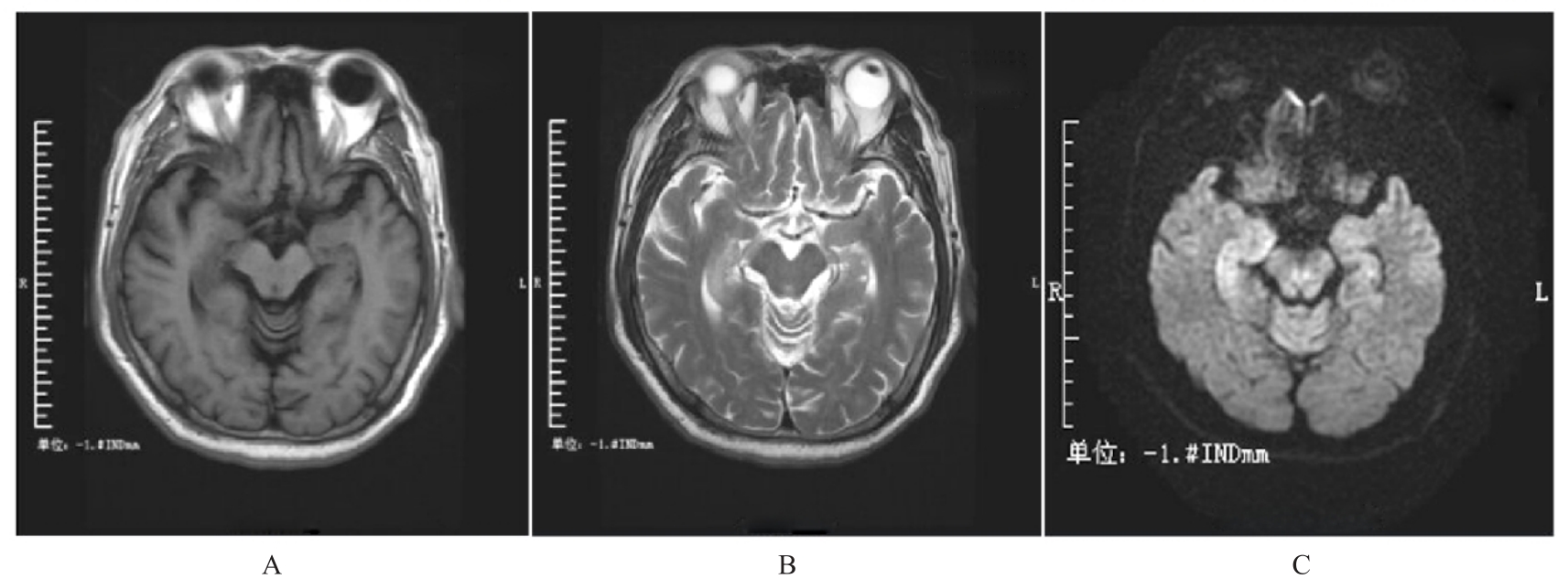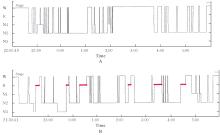| 1 |
BLATTNER M S, DE BRUIN G S, BUCELLI R C, et al. Sleep disturbances are common in patients with autoimmune encephalitis[J]. J Neurol, 2019, 266(4): 1007-1015.
|
| 2 |
DALMAU J, ARMANGUÉ T, PLANAGUMÀ J, et al. An update on anti-NMDA receptor encephalitis for neurologists and psychiatrists: mechanisms and models[J]. Lancet Neurol, 2019, 18(11): 1045-1057.
|
| 3 |
BRUNET DE COURSSOU J B, TESTARD P, SALLANSONNET-FROMENT M, et al. Narcolepsy secondary to anti-Ma2 encephalitis: two case reports[J]. J Clin Sleep Med, 2023, 19(4): 837-841.
|
| 4 |
MITTERLING T, HÖGL B, SCHÖNWALD S V, et al. Sleep and respiration in 100 healthy Caucasian sleepers: a polysomnographic study according to American academy of sleep medicine standards[J]. Sleep, 2015, 38(6): 867-875.
|
| 5 |
CORNELIUS J R, PITTOCK S J, MCKEON A, et al. Sleep manifestations of voltage-gated potassium channel complex autoimmunity[J]. Arch Neurol, 2011, 68(6): 733-738.
|
| 6 |
CAIRNEY S A, ASHTON J E, ROSHCHUPKINA A A, et al. A dual role for sleep spindles in sleep-dependent memory consolidation?[J]. J Neurosci, 2015, 35(36): 12328-12330.
|
| 7 |
NAGENDRA R P, SATHYAPRABHA T N, KUTTY B M. Enhanced dehydroepiandrosterone levels are positively correlated with N3 sleep stage in long-term mindfulness meditation practitioners[J]. Sleep Sci, 2022, 15(2): 179-187.
|
| 8 |
BOYCE R, GLASGOW S D, WILLIAMS S, et al. Causal evidence for the role of REM sleep theta rhythm in contextual memory consolidation[J]. Science, 2016, 352(6287): 812-816.
|
| 9 |
GIRARDEAU G, LOPES-DOS-SANTOS V. Brain neural patterns and the memory function of sleep[J]. Science, 2021, 374(6567): 560-564.
|
| 10 |
MUSIEK E S, XIONG D D, HOLTZMAN D M. Sleep, circadian rhythms, and the pathogenesis of Alzheimer disease[J]. Exp Mol Med, 2015, 47(3): e148.
|
| 11 |
HÉBERT J, DAY G S, STERIADE C, et al. Long-term cognitive outcomes in patients with autoimmune encephalitis[J]. Can J Neurol Sci, 2018, 45(5): 540-544.
|
| 12 |
HUANG Q Y, XIE Y, HU Z P, et al. Anti-N-methyl-D-aspartate receptor encephalitis: a review of pathogenic mechanisms, treatment, prognosis[J]. Brain Res, 2020, 1727: 146549.
|
| 13 |
OLSON E J, BOEVE B F, SILBER M H. Rapid eye movement sleep behaviour disorder: demographic, clinical and laboratory findings in 93 cases[J]. Brain, 2000, 123( Pt 2): 331-339.
|
| 14 |
BARONE D A, KRIEGER A C. Sleep disturbances in voltage-gated potassium channel antibody syndrome[J]. Sleep Med, 2016, 21: 171-173.
|
| 15 |
MUÑOZ-LOPETEGI A, GRAUS F, DALMAU J, et al. Sleep disorders in autoimmune encephalitis[J]. Lancet Neurol, 2020, 19(12): 1010-1022.
|
| 16 |
SCHENCK C H, MAHOWALD M W. REM sleep behavior disorder: clinical, developmental, and neuroscience perspectives 16 years after its formal identification in SLEEP[J]. Sleep, 2002, 25(2): 120-138.
|
| 17 |
RYE D. Modulation of normal and pathologic motoneuron activity during sleep[A]. In: CHOKROVERTYS, HENINGW A, WALTERSA S. Sleep and movement disorders [M]. Philadelphia: Butter-Worth Heinemann, 2003:94-119.
|
| 18 |
LIU Y, LIU Z, LIU W G, et al. Anti-leucine-rich glioma-inactivated 1-positive limbic encephalitis presenting hypothalamic symptoms[J]. Neurol Sci, 2020, 41(6): 1595-1597.
|
| 19 |
CHEMELLI R M, WILLIE J T, SINTON C M, et al. Narcolepsy in orexin knockout mice: molecular genetics of sleep regulation[J]. Cell, 1999, 98(4): 437-451.
|
| 20 |
SAPER C B, FULLER P M, PEDERSEN N P, et al. Sleep state switching[J]. Neuron, 2010, 68(6): 1023-1042.
|
| 21 |
LIU K, KIM J, KIM D W, et al. Lhx6-positive GABA-releasing neurons of the zona incerta promote sleep[J]. Nature, 2017, 548(7669): 582-587.
|
 ),Ke SUN2,Jiahui JIN2,Jun REN2
),Ke SUN2,Jiahui JIN2,Jun REN2







